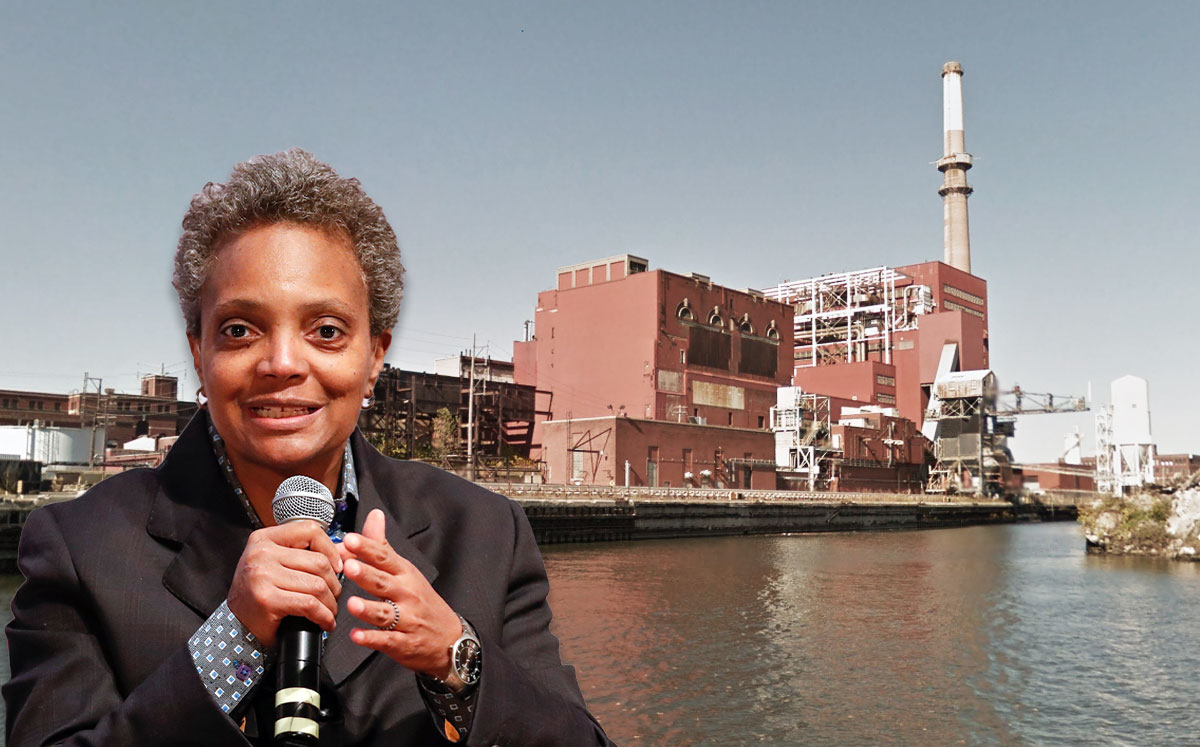Since the dust hasn’t yet settled, Mayor Lori Lightfoot will call off a second demolition at the site of the former Crawford power plant in Little Village.
On Thursday, her administration gave developer Hilco Redevelopment Partners the all-clear to knock down another building on the site, following the disastrous April 11 demolition that blanketed the neighborhood in dust and construction particulates. But by Friday, with activists outside her Logan Square home shouting, “Mayor Lightfoot lies, Little Village dies,” she put the kibosh on the plan.
The Department of Buildings had previously said that the “turbine structure” on the site is “unsound and needs to be removed immediately.”
“I’m very worried about people who have been breaking into the site continuing to scale the fence in search of copper and other scrap. That’s just a recipe for disaster,” Lightfoot said weeks ago.
It’s unclear when exactly the remainder of the site will be demolished.
Lightfoot has laid the blame at Hilco’s door, saying the Northbrook-based industrial developer was ultimately responsible for its Florida-based demolition subcontractor having not abided by legal and health standards on April 11. Hilco was fined $68,000. And in May, the state attorney general sued Hilco, MCM Management Corp. and Controlled Demolition Inc. for violating environmental laws.
Hilco’s plan is to demolish the shuttered power plant and finish remediation of the 70-acre site. Afterward, it would construct what it claims would be the largest available warehouse space in Chicago, at about 1 million square feet.
Hilco has branded the Chicago project “Exchange 55,” and said it will cost about $100 million.
Hilco in 2017 spent $12 million to buy the plant, which was shut down in 2012 after years of pressure from environmentalists. The firm received a $20 million city subsidy on the project, and secured a $153 million construction loan from Pacific Coast Partners in July.
Activists have called on Lightfoot to rescind the city subsidy. [Sun-Times] — James Kleimann
